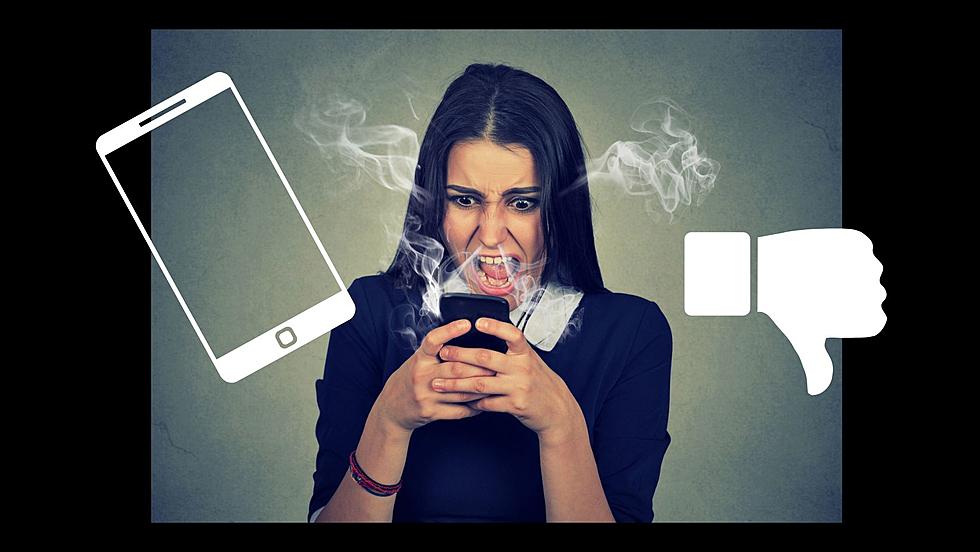
Iowa State University Study Suggests Limiting Social Media Can Make You Happier
In our society today we are inundated constantly with information. Social media, app alerts, calls, texts, push notifications, electronic billing; the list goes on and on. It can be quite overwhelming to say the least.
The Secret to a Happy Life is Simplicity
We didn't need a study to prove what most of us feel daily, but now we have one. According to a research project at Iowa State University, people can be happier, daily, simply by putting down the phone or computer, but more specifically social media.
Researchers at Iowa State University found a simple intervention could help. During a two-week experiment with 230 college students, half were asked to limit their social media usage to 30 minutes a day and received automated, daily reminders. They scored significantly lower for anxiety, depression, loneliness and fear of missing out at the end of the experiment compared to the control group. They also scored higher for “positive affect,” which the researchers describe as “the tendency to experience positive emotions described with words such as ‘excited’ and ‘proud.’” Essentially, they had a brighter outlook on life.
If you'd like an in-depth look at the study you can find it here.
The study outlined that personal media devices, like smartphones and tablets, provide easy access to social media (duh). That being said, it found that adults with smartphones reported higher daily usage than adults without mobile connectivity. I can certainly attest to that. When I switched to a smartphone my social media use went through the roof.

Here are some numbers from the study that really stuck out.
Social media and the internet were used exclusively on mobile devices by 86% of respondents, with 92% accessing them multiple times a day and 32% reporting being online “almost constantly.” Although 72% of surveyed adults use a least one social media platform, there is an emphasis on the usage of 18- to 29-year-olds who represent the largest age group with 90% of users, followed by 82% of 30- to 49-year-olds, 69% of 50- to 64-year-olds, and 40% of 65+-year-olds
Even When You Put the Phone Down, It Can Still Be Detrimental to Your Well-Being
Even worse, technology has become a nightmare for sleeping habits across the world, and, according to this study, those factors also affect mental and physical health and well-being. Simply having a phone light up in the middle of the night with alerts or notifications can affect your sleep, not to mention alerts that feature sound interrupting sleep patterns and disrupting the rem cycle your body so desperately needs, which can even lead to insomnia.
Enough! How Can We Fix This?
Well, as Monty Python sings, "Always Look on the Bright Side of Life," and by limiting social media, those in the study were able to do just that. But here's the rub, in a society where work and social activities so often combine now, how can we healthily forgo long segments of social media and in some cases, work?
Researchers outlined these steps to start with:
- Create awareness. Set a timer or use a built-in wellness app to see how much time you spend on social media.
- Give yourself grace. Recognize that it’s not easy to stick to a time limit. Social media apps are designed to keep you engaged and coming back.
- Don’t give up. Limiting social media use over time has real benefits for your daily life.
This study also outlines that some social media interactions can be positive, and negative effects can vary from person to person. Some people are more prone to feelings of loneliness, isolation, and a sense of missing out, which social media can create. Others, like me, simply couldn't care less; which apparently is the correct way of dealing with social media.
As a whole things like Instagram, Facebook, and other social media are great for keeping up with friends, family, and daily happenings, but it's important not to shun actual interaction face to face. We could all do with a little more of that, and a little less screen time.
Take a break from your phone! Get outside to these awesome local spots...
Photos: River Museum's POPnology Exhibit
Hiking Trails and Nature near Dubuque, Iowa
The Dubuque Arboretum & Botanical Gardens
More From Eagle 102.3





